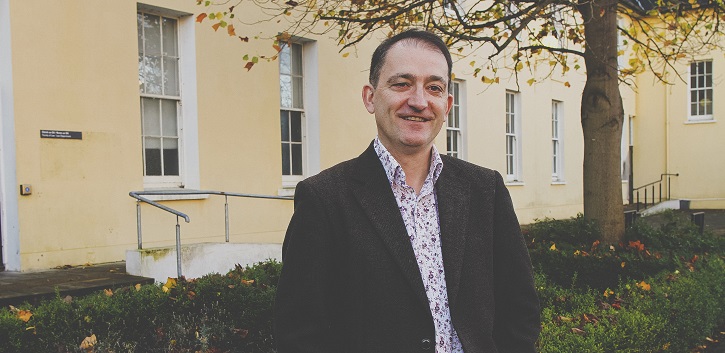Op Ed: Ireland between a rock and a hard place

A report from the German Chambers of Commerce Worldwide and the German-Irish Chamber of Commerce concludes that, of all the EU members, Ireland has most to lose from a hard Brexit.
Simply based on the level of trade between Ireland and the UK, it is hard to disagree with that conclusion. However, while Brexit is likely, on average, to be negative for the Irish economy, there is too much uncertainty about the Brexit process to estimate the precise effects.
Ireland and the UK share approximately €1 billion in trade every day. The impact of, at best, currency fluctuations and, at worst, the imposition of tariffs will be substantial and damaging. Brexit will be painful for the Irish economy, and the harder the Brexit the more pain we can expect.
The more immediate problem for Ireland however is that it is caught in the middle of a political stand-off. As with any process in the EU, there are significant political concerns that often outweigh economic concerns. The best outcome for everyone, including the British themselves, is the mildest form of Brexit possible, where the UK retains access to the common market and there is free movement of people. Political considerations in the UK and leading EU states may work the other way though. Ireland is feeling most pressure from the stand-off.
Irish worries are not likely to feature strongly in #Brexit talks, says @decjordan of @UCC https://t.co/Ap5zMlNgOE
— The Business Post (@sundaybusiness) December 8, 2016
The British government clearly doesn’t have a plan for Brexit and is scrambling to find one. This explains the sometimes contradictory messages coming from the British government and meaningless statements such as the “red, white, and blue Brexit”. We are now over 5 months from the referendum and there is no clarity on Brexit, except that the process will begin by March of next year.
In the meantime, EU leaders sit and wait for the British to get their act together. There is little incentive for Chancellor Merkel, President Hollande, and other leaders of larger EU members to adopt anything other than their best poker faces. The Brexit process is unprecedented and triggering Article 50 will set in train a series of negotiations whose outcome is unpredictable. In this context it makes sense to be non-committal and let the British come with their opening offer.
In addition European leaders are worried about anti-EU sentiment that could be encouraged by a soft approach to negotiations with the UK. If there is a sense that countries could gain the benefits of membership without the perceived costs, there is potential for an unravelling of the European project.
The Irish are caught in the middle of these strong political forces, and there is little prospect of the pressure easing up any time soon. There may privately be some sympathy for the Irish case and a reluctance to see an EU border appear on the island of Ireland, but the public stance of EU leaders is unlikely to give comfort to Irish policymakers.
The negative effects of the uncertainty on what type of Brexit emerges are compounded by the all-too-real effects on Irish exporters of the decline in Sterling. Irish producers are finding that their goods are more expensive in the UK, and this is a particular problem for some sectors, such as food exporters, who are heavily reliant on the UK market and operate with tight margins.
There is also the added worry that while the UK economy remains healthy, for the time being, a slowdown prompted by lower investment would further hit Irish exporters’ potential to grow volume to offset price losses.
The positive opportunity held out for Ireland in Brexit is its potential as an alternative destination for foreign direct investment, particularly in banking. Irish agencies have not been behind the door in pressing Ireland’s case. If this works to Ireland’s benefit, and risks from President-Elect Trump’s proposed tax changes are overstated, we are unlikely to see any impact for a couple of years. The uncertainty surrounding the type of Brexit will also mean foreign businesses in the UK and large UK businesses are likely to wait and see before unwinding their substantial investments to move to Ireland.
Ireland has more at stake than any other EU member from Brexit. The attention paid to Brexit by Irish politicians, businesses, and media clearly shows how much anxiety it is causing. However, our worries are not likely to feature strongly for British and EU leaders as they begin to face off. The Irish need to persist in making our case, but it may be some time before the decision-makers turn their heads to listen.
Ends
Dr Declan Jordan is a Senior Lecturer in the School of Economics at University College Cork
Media: For further information contact or Ruth Mc Donnell, UCC Head of Media and PR, Mob: 086-0468950
More from the Irish Examiner http://www.irishexaminer.com/viewpoints/analysis/ireland-caught-between-an-eu-rock-and-a-brexit-hard-place-434173.html
This Op Ed also appeared in the Sunday Business Post and online UK business fora.
